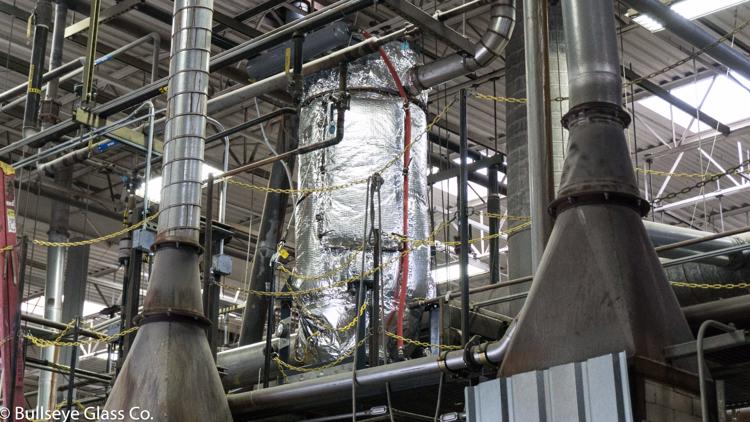PORTLAND, Ore. – The embattled Portland company Bullseye Glass has agreed to pay for cleaning two drywells after a Department of Environmental Quality investigation found elevated levels of toxic metals, some of which cause cancer, in one of the company’s two wells.
Bullseye glass has been under fire after moss studies found elevated levels of toxic metals near the glass factory. The company has also been blamed for high lead levels at a nearby daycare.
The Oregon Department of Environmental Quality tested two feet of sediment in the drywells, which Bullseye uses to drip stormwater runoff from its roof into the ground.
The sediment accumulated “over a period of many years,” according to the cleanup cost agreement.
The DEQ said soil samples taken from neighborhoods near Bullseye showed there was no immediate health risk to residents.
The investigation found at least eight hazardous metals in the drywell that collects runoff from the part of the roof where the furnace vents are, the DEQ announced Monday.
Five of the metals are known carcinogens, according to the Agency for Toxic Substances & Disease Registry: Arsenic, cadmium, chromium, hexavalent chromium and nickel. Two other substances – barium and lead - may cause cancer in humans but the ATSDR said there is not enough evidence to say for sure. Selenium likely does not cause cancer but at high levels can negatively impact human health in other ways.
The wells were cleaned Tuesday, Oct. 4 and the water and sediment were taken to a hazardous waste disposal facility. Bullseye agreed to find out whether the soil and groundwater near the drywell were contaminated. The total cleanup cost is expected to exceed $5,000.
Bullseye is complying with the DEQ’s new rules for glass manufacturing and emissions shouldn’t create the same runoff problem in the future, the state agency said.



